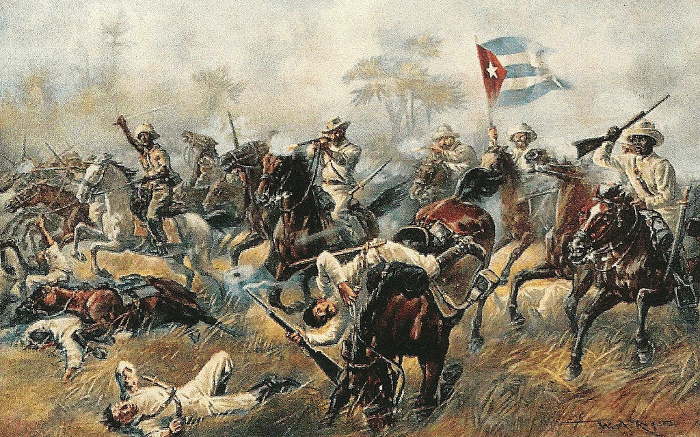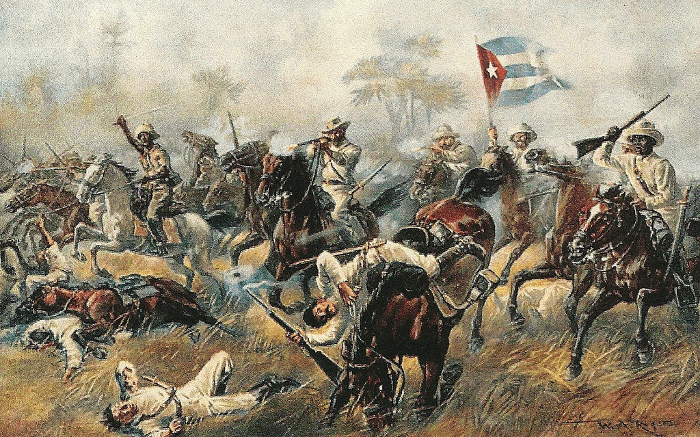To the machete: a glorious call for the independence of Cuba .

From that moment on, that tool, traditionally used on the island for cutting sugar cane and other agricultural tasks, became a robust and effective weapon of the Liberation Army, the ultimate symbol of the heroism and determination of a people.

The day of October 26th, 1868 marked a before and after in the history of Cuba, when Pinos de Baire, a small town belonging to the former Oriente province, witnessed the epic that time would baptize as the first machete charge in the largest of the Antilles.
Inscribed in the context of the so-called Ten Years’ War, the glorious feat, led by Dominican General Máximo Gómez Báez, was a turning point both in military strategy and in the combative spirit of the Cuban people.
The choice of the place was the result of a plan carefully designed by Major General Donato Mármol, who under the orders of Carlos Manuel de Céspedes and with the help of Gómez and Calixto García, aspired to undermine the advance of the Spanish troops under the command of Colonel Demetrio Quirós Weyler, stationed in Baire and with the intention of heading to Jiguaní.
The Generalissimo, at the head of about 40 brave men, had occupied the place of the ambush since early morning, ordering that nobody would open fire until he ordered it, a feat that materialized around noon, when the vanguard of 200 men of Quiros, composed by the duo of regiment companies «Cuba» and «La Corona», appeared in the enclosure.
With a few shots followed by an assault with bladed weapons, the withering attack began, which caused great stupefaction and panic in the Hispanic flank, which could barely respond to the insurrectionist mob, lost a third of its 700 troops and had to give up its efforts to reach the Bayamese territory.
From that moment on, that tool traditionally used on the island for cutting sugar cane and other agricultural chores, became a robust and effective weapon of the Liberation Army, the ultimate symbol of heroism and determination of a people whose freedom, paraphrasing the Bronze Titan, was not begged for, but was conquered with the edge of the machete.
Written by Yadiel Barbón Salgado.




